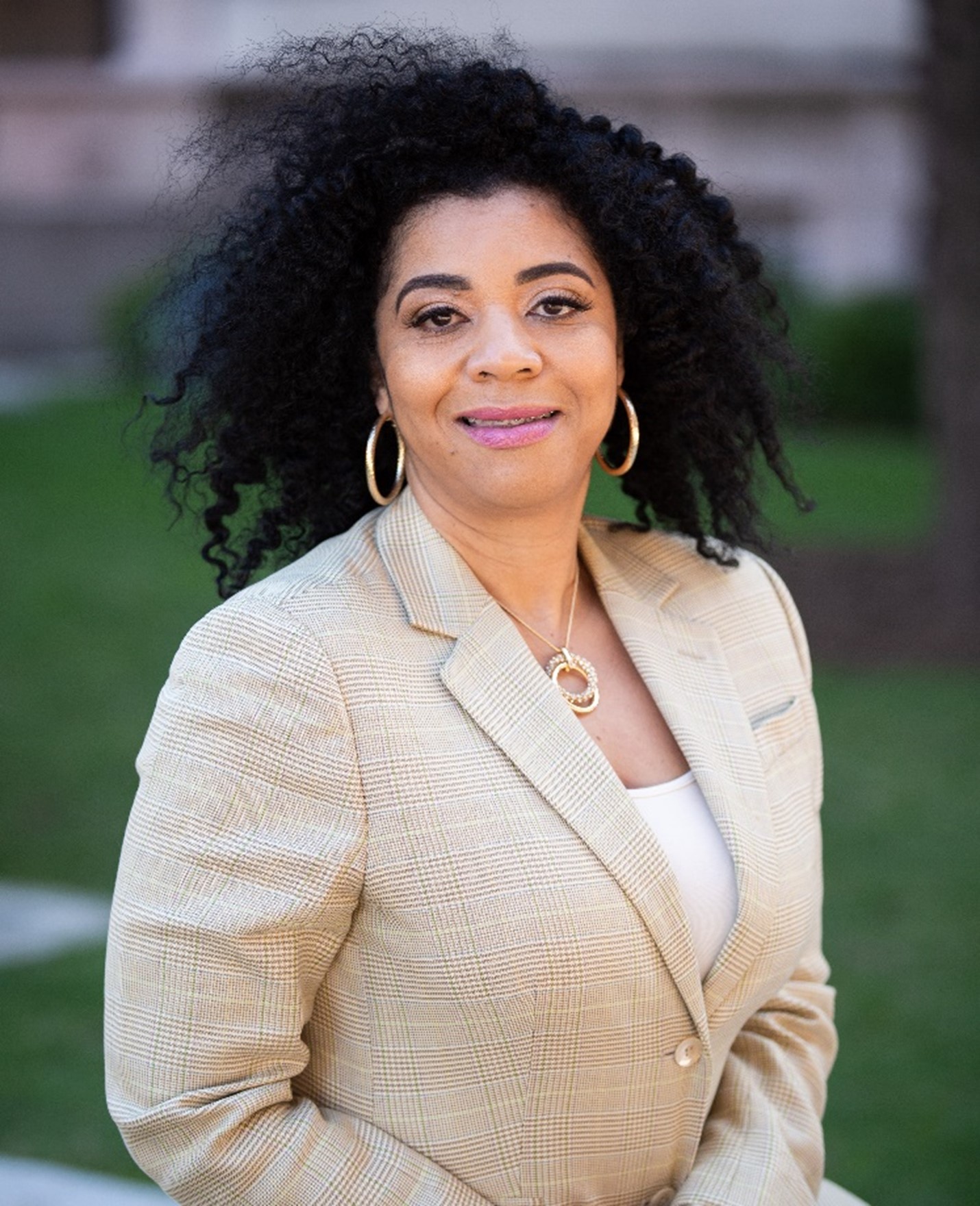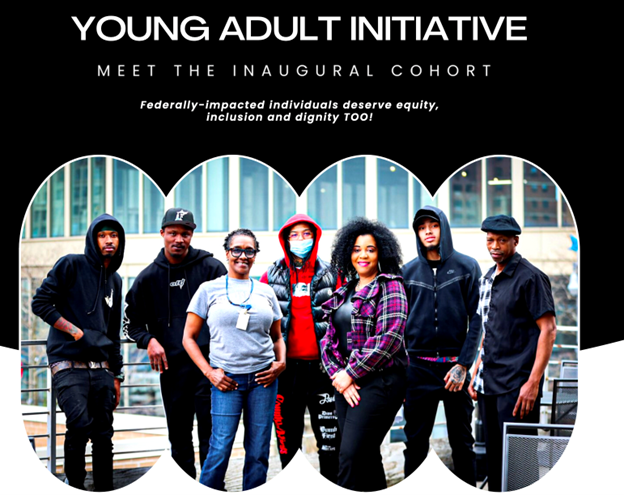Spotlight on: Tanya Pierce, Life Unbolted
This edition of the Searching for Justice series profiles the work of Tanya Pierce.
Around 2 million people are incarcerated in the United States at any given time (Sawyer & Wagner, 2020; Vera Institute, 2021). When they are released, most of those people will face "invisible punishment" (Travis, 2002) such as community supervision requirements, fines, and denial of voting rights. Unfortunately, news media coverage of the difficulties of reentry has some major gaps. To fill these gaps, the Kendeda Fund is supporting PBS NewsHour's Searching for Justice series — and Knology's independent work to convene experts who are providing formative feedback on the series. We're amplifying those experts' voices and their work through a series of brief profiles.
*
"We can save everyone," Tanya Pierce says. "Our communities, ourselves. Everyone." During the early days of the COVID-19 pandemic, she drove to New Jersey each week to bring back vegetables to her neighbors because the produce in her local store was sad and wilted. In a seeming non sequitur, she asks, "Did you know there's one million physically disabled people in New York? I'm not going to leave anybody behind."

But it's not a non sequitur at all. Tanya's point is that everything is connected. The ongoing COVID-19 crisis, and our wildly disparate experiences of it along lines of race and class and gender. Housing justice. Racial justice. Economic justice. New York City's vulnerability to climate change — which Tanya first experienced living in Coney Island during the 1992 Nor'easter, and saw again when eleven New Yorkers drowned at home during Hurricane Ida in 2021. Mass incarceration — which Tanya first experienced in the early 1970s, when her father was incarcerated pre-trial. Her point is that the people who are most vulnerable to any one crisis are also made vulnerable to all the others, and that we could care for all of them if we just helped everyone make the connections.
Life Unbolted, the organization Tanya started to support work she was doing on a volunteer basis, plans to address all of it, first by making the connections and by reframing the approach. "Maybe we can get out of crisis-response mode," Tanya says. After all, it's hard to address the long term when you're constantly responding to crises. Life Unbolted is helping people choose the path to a different world.
With generous support from the Tow Foundation and Pinkerton Foundation, a key focus area for Life Unbolted is supporting people who are impacted by the federal carceral system. Many more direct services are available for people returning home from state prisons than federal ones. There are many reasons for this service gap: ineligibility, a lack of referral infrastructure, and a lack of familiarity with the specifics of federal supervised release. Some providers of reentry services are familiar only with state supervision restrictions. Those at the federal level are often even more burdensome. For example, people under federal supervision are under constant location-monitoring through both ankle monitors — which require frequent charging — and accountability calls — which can interrupt meetings.
How does this lack of familiarity play out? There are too many examples to list. Therapy could be very helpful, except Tanya tells me that few therapists understand the full scope and burden of these requirements. Tanya also worries about the interaction of local marijuana legalization with federally mandated drug testing: what are the thresholds?
Here are just a few of Life Unbolted's projects:
#RemissionNow - Many people who were convicted of white-collar crimes find themselves "shackled to debt" because they are under court orders to pay back money they may never have seen. "We're not all Martha Stewart," Tanya tells me. "Most people who have these restitutions are not rich people." And lawyers' training focuses much more heavily on incarceration than on collateral consequences. A partnership between Ladies of Hope Ministry and the REFORM Alliance, and the National Association for Criminal Defense Lawyers, #RemissionNow seeks to end restitution and collateral consequences, which can amount to a life sentence. Tanya also consulted on a podcast project about racial disparities in restitution with third-year law students at Columbia Law School. Her goal was to ensure that future lawyers, judges, and prosecutors are informed about the ins and outs of forfeiture, restitution, and collateral consequences — and change the way they work.
Tanya has also led public events highlighting the challenges of re-entry. After meeting the US Attorney from the Eastern District of New York, Tanya was invited to participate in a training with staff through a simulation of the reentry process. She was one of several directly impacted people who spoke at this event, in which assistant US attorneys and legal staff had to try to access IDs, figure out how to pay rent, and so on. At the end of the event, Tanya gave a short speech that brought home the difficulties of re-entry: "President Biden says everyone deserves a second chance, but all of you broke the law. You all failed. Every last one of you. You talked to one another, and the first rule that they give you is that you're not to communicate with another ex-offender." The roomful of prosecutorial staffers was, Tanya says, absolutely floored.
That led to a connection with Eastern District judges, and the opportunity to work with young adult diversion programs known as POP, the Pretrial Opportunities Program and SOS, or Special Options Services. (In New York, the Southern District has a comparable program — the Young Adult Opportunities Program — that Life Unbolted does not work with.) The goal of these programs, Tanya explains, is to keep young adults from ever entering prison at all. Yet there are relatively few services available. "Did you know that there are like 200 young adults here in the federal system in New York, that are pre-trial and on the ankle monitors?" Tanya asks me. For many programs, she explains, funding is heavily dependent on outcome measures — specifically, recidivism rates. As a result, program leaders may deem the pre-trial population too high of a risk to work with: they may be incarcerated in the future (as a result of their pending charges) even if they do everything right.
Life Unbolted's new program meets weekly. Tanya has brought together five young fathers in a range of circumstances — home confinement, halfway house residents, "at risk" status — for a literal breath of fresh air. They meet on a rooftop for a short reprieve from accountability calls to receive empowerment training and advocacy. Tanya plans to plug them into existing employment and supportive services, and to check in at the two- and three-month marks to see what they need.

The primary focus is employment opportunities and financial planning. She's encouraging her group to sign up for qualifying examinations at city agencies like the Department of Sanitation and the MTA. As she points out, most of these civil service jobs are open to federally impacted individuals, pay well and have solid benefits, and best of all, they are careers: once you join, there are ample opportunities for training and advancement.
As if Tanya wasn't doing a million other things, she was also a consultant for REFORM Brooklyn's job fair in March. One of the biggest challenges for people under strict supervision in the federal system is that they're not supposed to spend time with other people who have been impacted by the carceral system. Tanya was able to negotiate day passes for more than 100 people to attend the job fair together without having to make near-constant accountability calls. That included people living in halfway houses, people in home confinement, and others navigating the world under this level of supervision.
She also brought in barbers and makeup artists, primarily from areas that she describes as "reentry deserts" - that is, neighborhoods that have little to no services. Offering personal grooming services was a key opportunity to help people make as good an impression as possible.
*
It's been a promising few years for marginalized New Yorkers, particularly for those who've been directly impacted by the criminal legal system. After decades of calls to close the infamous city jail on Rikers Island, plans are finally in place. On September 17th, 2021, Governor Kathy Hochul signed the Less is More Act, which places strict limits on the use of incarceration as a response to technical parole violations. Less is More, in particular, promises to have far-reaching positive consequences for communities of color, who are disproportionately targeted for parole violations.
But it's also been a devastating few years for marginalized New Yorkers, who have borne the brunt of both COVID-19 and climate-related superstorms. As Jia Tolentino wrote in The New Yorker in 2020, "There are those who will want to return to normal after this crisis, and there are those who will decide that what was regarded as normal before was itself the crisis." Tanya Pierce is working hard to help people see that normal was the crisis — and that we can change it, together.
Cover image by Grant Durr @ Unsplash
Photos courtesy of Tanya Pierce